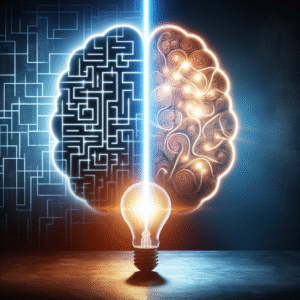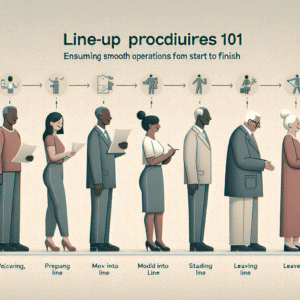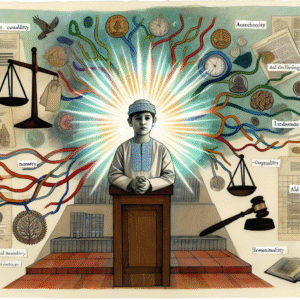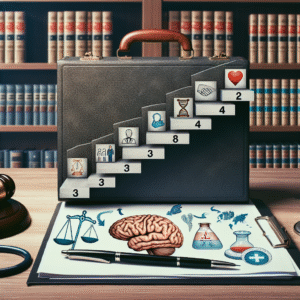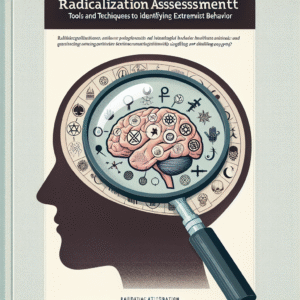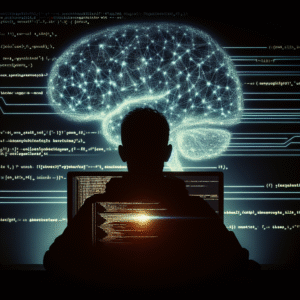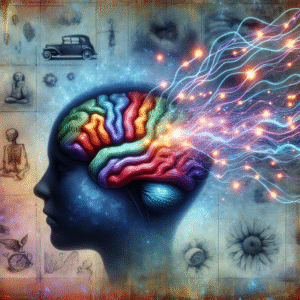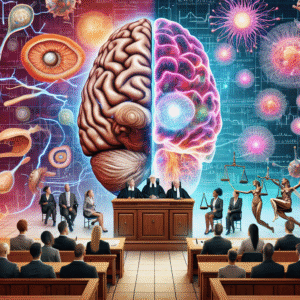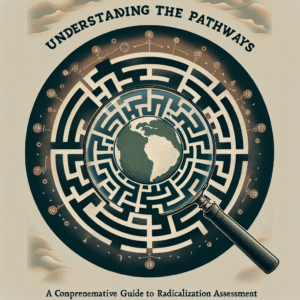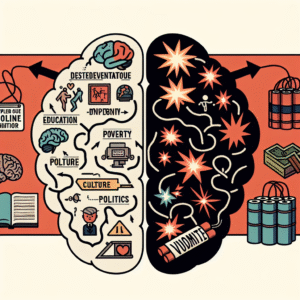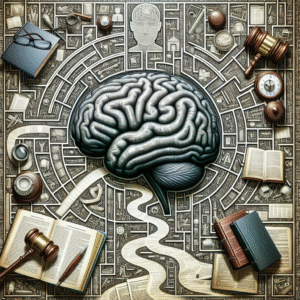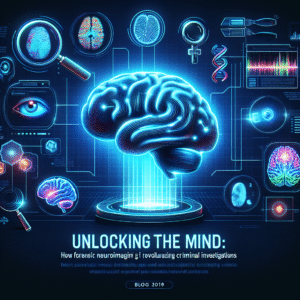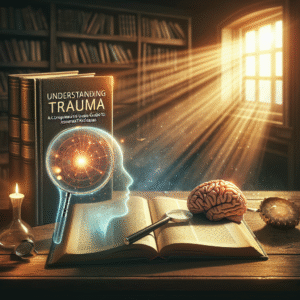Introduction: The Crucial Intersection of Safety and Performance In high-stakes environments—whether it’s law enforcement, firefighting, or aviation—the pressure is on. Fatigue, stress, and the physical demands of the job can profoundly impact performance and safety. This reality brings us to a pivotal topic: The Role of Fitness For Duty Assessments in High-Risk Professions. These assessments are essential tools that...
Fitness For Duty
Introduction Imagine standing before a judge, your fate hanging in the balance, yet not fully understanding the charges against you or the implications of your confession. This unsettling scenario underscores the importance of Miranda competence in protecting defendant rights. The Miranda warning, derived from the landmark U.S. Supreme Court case Miranda v. Arizona (1966), serves as a cornerstone of...
Introduction In an age characterized by vast information exchange and accelerated communication, the ability to discern truth from deception has never been more critical. Whether in law enforcement, corporate settings, or personal relationships, understanding the psychology of interrogation techniques is vital. This exploration, "Truth or Deception? Understanding the Psychology of Interrogation Techniques," delves deep into why individuals lie, how...
Introduction In the fast-paced world of events, be it sporting gatherings, concerts, or conferences, effective lineup procedures are crucial for seamless operations. Imagine a massive concert where thousands of fans are eager to see their favorite band. Now picture a chaotic entry process, long lines, and frustrated attendees. This situation underscores the significance of Lineup Procedures 101: Ensuring Smooth...
Introduction Imagine standing in a room filled with friends, laughter echoing off the walls, when suddenly, you realize that the specific details of that moment cling to you like fog on a morning dawn. But what if those memories are not as pure as they seem? “Revisiting the Past: The Science Behind Memory Contamination” dives deep into the fascinating...
Introduction Imagine a child’s innocent recounting of a significant event—perhaps a thrilling day at the park or a troubling incident involving a stranger. These accounts are not just stories; they carry weight in our legal system, influencing everything from court outcomes to policy changes. But how reliable are these memories? In this article, Memory Matters: Exploring the Factors Affecting...
Introduction Brain injuries can drastically change lives, bringing with them challenges that extend beyond physical healing. Understanding the legal process for claiming compensation can feel daunting—an overwhelming maze of law, paperwork, and negotiation. This guide, Unpacking the Legal Process for Brain Injury Claims: A Step-by-Step Guide, aims to demystify this complex terrain. By breaking it down into manageable steps,...
Introduction In a world fraught with unpredictability, hostage situations remain one of the most harrowing crises law enforcement and special operations teams face. The stakes are undeniably high—lives hang in the balance, tensions run intense, and decisions must be made quickly. At the core of these high-pressure scenarios lies a crucial element: effective communication. Holding the Line: How Effective...
Introduction In today’s complex world, the rise of extremist behaviors poses significant challenges to societies globally. Understanding the process of radicalization—how individuals move toward extremist ideologies—is crucial for effective prevention and intervention. Thus, Radicalization Assessment: Tools and Techniques for Identifying Extremist Behavior has become an essential area of focus for governments, law enforcement, educators, and community leaders. This article...
Introduction In a world increasingly shaped by conflict, understanding the forces that drive individuals toward terrorism is more crucial than ever. At the heart of this dark phenomenon lies a complex interplay between ideology and psychology. The Role of Ideology in Terrorist Motivation: A Psychological Analysis explores the intricate motivations behind terrorism, illuminating how ideological frameworks can transform ordinary...
Introduction In our ever-evolving digital world, the rise of cybercrime has taken center stage, becoming a pressing issue that affects individuals, businesses, and governments alike. The term "hacker" often conjures images of hooded figures tapping furiously on keyboards in dark rooms, but the reality is far more complex. Understanding the phenomenon of cybercriminality calls for deeper introspection into the...
Introduction Imagine a world where law enforcement can predict criminal behavior before it happens, simply by analyzing geographic patterns. A tool that can dissect the complexities of crime through data and reveal the potential for future incidents is known as geographic profiling. In today’s interconnected, fast-paced society, understanding the geography of crime is not only relevant but essential. This...
Introduction In an age where technology and human behavior intertwine more than ever, understanding the nuances of human psychology can be the key to unlocking complex investigations. Behind the Scenes: How Behavioral Evidence Analysis Transforms Investigations delves into the fascinating realm of behavioral evidence analysis, revealing how insights gleaned from human behavior can shape investigative outcomes. Imagine a crime...
Introduction In today’s fast-paced work environment, ensuring the safety and well-being of employees is more critical than ever. Creating a Safe Workspace: How to Recognize and Address Workplace Violence is not just a matter of compliance; it’s a foundational element that fosters a positive workplace culture and enhances productivity. Workplace violence can manifest in various forms, from verbal threats...
Introduction In today’s rapidly evolving workplace, ensuring safety and productivity is paramount. However, balancing these needs with employee rights can be a complex endeavor. The concept of Fitness For Duty Evaluations: Balancing Employee Rights and Workplace Safety plays a crucial role in navigating this delicate equilibrium. These evaluations not only assess an employee’s ability to perform job duties safely...
Introduction Imagine being in a situation where every word you say could forever alter your future, yet the very rights meant to protect you are lost amidst the chaos of an interrogation room. Miranda Competence Explained: Navigating Rights in Interrogation Settings is essential for understanding your rights during police questioning. This article aims to demystify Miranda competence, elucidate the...
Introduction Behind closed doors, the intense world of police interrogation unfolds. It’s a setting filled with high stakes, psychological maneuvers, and the pressing urgency of justice. In an age where true crime fascinates and fear of wrongful convictions looms large, understanding the science behind police interrogation is more crucial than ever. This exploration, “Behind Closed Doors: The Science of...
In an era defined by experiences, events are not just gatherings; they are powerful narratives that, when executed correctly, can leave lasting impressions. Whether you are organizing a corporate seminar, a wedding, or a festival, understanding the intricate details involved in event planning is crucial. This is where The Ultimate Lineup Playbook: Best Practices for Event Success comes into...
Introduction Imagine recalling a cherished memory, only to discover that it’s been altered slightly—or dramatically—by external factors. This isn’t a mere figment of your imagination; it’s a psychological phenomenon that affects everyone, often without our awareness. The phenomenon of memory contamination—the way in which external influences shape our recollections—holds profound implications for our understanding of memory itself. In a...
Introduction Imagine a courtroom filled with tension, where every word matters, and justice hangs in the balance. Now picture a child, small and innocent, recounting a traumatic experience. Their testimony could shape the outcome of a trial, but how reliable is their perception of events? "Seeing Through Innocent Eyes: The Science of Child Witness Reliability" explores this critical question....
Introduction Imagine a life altered in an instant—a moment of trauma that changes everything. Whether it’s a car accident, a sports injury, or a fall, the aftermath can be devastating. As we delve into The Aftermath of Trauma: Understanding Brain Injury Legal Cases, we explore not only the impact of brain injuries on victims and their families but also...
Introduction Imagine a courtroom where the very fabric of justice is woven with the threads of neuroscience. This is not a futuristic fantasy but a present-day reality where the intersection of neuroscience and law is reshaping legal outcomes. The phrase "Neuroscience Meets the Courtroom: The Impact of Forensic Neuroimaging on Legal Outcomes" encapsulates a transformative movement that could redefine...
Introduction In a world where the intersection of science and law is becoming increasingly relevant, the phrase "Brain Science Meets the Courtroom: Neuropsychological Insights in Legal Cases" emerges as a beacon of understanding. Imagine a courtroom where the immutable laws of human behavior are informed by the fascinating intricacies of the brain. As we dive deeper into the complexities...
Introduction In a world where mental health struggles are often brushed aside, the need for a deeper understanding has never been more pressing. "Beyond the Surface: How Psychological Autopsies Illuminate Mental Health Issues" explores a powerful tool that sheds light on the silent battles many face. This examination reveals critical insights into mental health, guiding families, professionals, and policymakers...
Introduction In the realm of law, the focus typically lingers on tangible evidence, witness testimonies, and the mechanics of legal proceedings. However, there exists an often-overlooked element that can significantly influence the outcomes of trials and legal disputes: post-traumatic stress disorder (PTSD). As a psychological condition that can dramatically affect a person’s mental state and behavior, PTSD emerges as...
Introduction In a world increasingly aware of mental health, understanding the nuances of trauma is paramount. Trauma shapes lives, sometimes in subtle ways, often overlooked in traditional assessments. The Importance of Trauma Assessment in Mental Health: Getting it Right serves not only as a guiding principle for mental health professionals but also as a vital message for anyone navigating...
Introduction Capital punishment is one of the most polarizing topics in the landscape of criminal justice. It evokes passionate arguments both for and against its use, often entwined with ethical considerations, historical context, and its perceived effectiveness in deterring crime. As society grapples with questions of morality and justice, understanding capital punishment—analyzing its impact on crime rates and justice—is...
Introduction In an era where the justice system often prioritizes punitive measures over rehabilitation, the rising conversation around sentencing mitigation reveals a vital pivot in how we understand crime and punishment. Beyond Punishment: The Role of Sentencing Mitigation in Modern Justice Systems not only explores innovative approaches to justice but also challenges entrenched norms that have historically favored retribution....
Introduction In an age where safety is paramount, understanding violence risk appraisal has become essential for communities, organizations, and individuals alike. With incidents of violence impacting lives globally, pinpointing the potential for harm helps in taking preemptive measures. But what makes this understanding so crucial? How can organizations effectively assess and predict potential threats? This article delves into "Understanding...
Introduction In an increasingly digital world, where information breaches and cyber threats loom large, understanding the landscape of cybersecurity is paramount. "Assessing Risks: The Essential Role of Threat Assessment in Cybersecurity" not only underscores the importance of identifying vulnerabilities but serves as a beacon for organizations striving to secure their digital assets. As cybercriminals grow more sophisticated, the need...
Introduction In the world of forensics, the ability to convey complex information clearly and effectively can make all the difference in a legal situation. Forensic report writing is not just about documenting findings; it’s about translating intricate scientific data into a format that can be easily understood by judges, juries, and law enforcement professionals. If you’ve ever wondered how...
Introduction In a world that is becoming increasingly interconnected, the fabric of society is woven with diverse cultural threads. This diversity, while a source of strength, can also pose significant challenges, particularly in the realm of forensic investigations. Bridging the gap: The importance of cultural competence in forensic investigations is not just a theoretical concept; it is a practical...
Introduction In the intricate world of forensic psychology, professionals often find themselves on a precarious tightrope, balancing the demands of justice with the imperative to uphold ethical standards. "Navigating the Fine Line: Ethical Dilemmas in Forensic Psychology Practice" encapsulates the essence of this struggle. As forensic psychologists, individuals are required to serve the legal system while ensuring the mental...
Introduction In an era where the justice system is increasingly scrutinized for its effectiveness and fairness, new paradigms are essential. One such paradigm is Redefining Justice: The Role of Mental Health Courts in Rehabilitation. These courts serve as a beacon of hope for individuals grappling with mental health issues, diverting them from the traditional penal system toward treatment and...
Introduction In today’s world, families face numerous challenges, and one of the most distressing can be the issue of substance abuse. Understanding how to navigate substance abuse evaluations is essential for families seeking to support loved ones struggling with addiction. Navigating Substance Abuse Evaluations: A Comprehensive Guide for Families aims to clarify this complex process, offering vital insights and...
Introduction Imagine a memory so vivid it feels like reality—a child’s birthday, a family vacation, or even a traumatic event. Now imagine discovering that this cherished memory is entirely fabricated. Welcome to the world of false memories, where the mind can play tricks that alter our perception of reality. The Psyche’s Mirage: Understanding False Memory Syndrome dives deep into...
Introduction In a world fraught with uncertainty and crisis, few scenarios evoke as much fear and intrigue as a hostage situation. The stakes are incredibly high for all involved—hostages, their loved ones, and negotiators alike. “Navigating the Unthinkable: Strategies and Insights from Expert Hostage Negotiators” isn’t just a concept; it’s a profound necessity in crisis management. Expert negotiators use...
Introduction In our increasingly interconnected world, the phenomenon of radicalization poses significant challenges to societies globally. Understanding the Pathways: A Comprehensive Guide to Radicalization Assessment dives deep into the critical elements of radicalization, offering insights into how extremism develops and how we can assess and intervene effectively. The urgency of tackling this issue has never been more crucial, as...
Introduction In a world increasingly fraught with conflict and violence, understanding the underlying motivations and psychological constructs of individuals who commit acts of terror has never been more urgent. "Understanding the Mind of a Terrorist: Psychological Profiles and Pathways to Violence" aims to unravel these complexities, offering insights that go beyond the headlines. Terrorism is not merely a political...
Introduction In today’s hyper-connected world, the rise of digital crimes has sparked a pressing need for a deeper understanding of the individuals behind these nefarious activities. The Mind of a Cybercriminal: Unlocking the Psychology Behind Digital Crimes encompasses a fascinating and complex interplay of motives, behaviors, and risk assessments that drive these individuals. Understanding this realm is not merely...
Introduction Imagine being able to predict where a criminal might strike next, simply by analyzing their previous actions and geographic patterns. Geographic profiling has transformed the world of criminal investigations, utilizing cutting-edge science to uncover the psychological motives behind criminal behavior. Welcome to Mapping Criminal Minds: The Science of Geographic Profiling—an essential area of study for law enforcement and...
Introduction In an age where psychology intertwines with forensic science, understanding human behavior has become essential in unraveling the complexities of criminal acts. Behavioral Evidence Analysis (BEA) is not merely a tool for criminologists; it’s a lens through which investigators decode the motives, strategies, and psychological scars of offenders. The relationship between a perpetrator’s actions and their psychological motivations...
Introduction In today’s fast-paced work environment, the topic of workplace violence resonates deeply. Businesses around the world are recognizing that fostering a safe and secure workplace isn’t just a legal obligation; it’s essential for employee morale and organizational success. Understanding Workplace Violence: Causes, Effects, and Prevention Strategies is crucial for leaders and employees alike. This article will explore the...
Introduction In today’s fast-paced workplace, the phrase "Understanding Fitness For Duty: Ensuring Employee Well-Being and Organizational Safety" resonates more than ever. With rising demands and complexities in various industries, organizations are tasked not only with delivering results but also ensuring that their employees are fit, mentally and physically, to perform their duties. The importance of this concept cannot be...
Introduction In the intricate web of the American legal system, few concepts are as pivotal as Miranda competence. This principle not only safeguards individual rights but also lays a foundation for fair legal proceedings. Understanding Miranda competence: the key to fair legal proceedings serves as a reminder that justice should never be blind, particularly when it comes to upholding...
Introduction Imagine a dimly lit room with a single flickering bulb illuminating the faces of an investigator and a suspect—tension crackles in the air. The stakes are high, and the truth lies somewhere between the spoken words and the silence. This scenario encapsulates the essence of interrogation: a pivotal moment that can either unravel a case or solidify its...
Introduction In an era where events are the lifeblood of networking, branding, and community engagement, mastering lineup procedures is paramount. Whether you’re organizing a concert, a corporate event, or a community festival, the efficiency of your lineup can significantly impact the experience of attendees and the overall success of your gathering. This guide aims to provide you with in-depth...
Introduction Have you ever found yourself questioning the accuracy of your memories? Perhaps you reminisced about a long-ago vacation, only to find friends recounting events that don’t quite match your recollections. This is not merely a sign of aging or faulty memory; it’s a phenomenon known as Memory Contamination. Understanding the distortion of our past can unlock insights into...
Introduction In our quest for justice, the voices of the vulnerable often rise above the din of skepticism. Among them, child witnesses bring a unique perspective to legal proceedings, but how reliable are their accounts? The Truth in Tiny Voices: Assessing the Reliability of Child Witnesses uncovers the complexities of interpreting their testimonies. With the stakes high, understanding the...
Introduction Brain injuries can dramatically alter lives, bringing not only physical challenges but also emotional and financial burdens. Navigating the complexities of brain injury litigation is essential for those affected and their families to ensure they receive the necessary support and compensation. This guide aims to illuminate the intricacies of this often overwhelming process, drawing on real-world case studies...
Introduction In an era where technology pervades every facet of our lives, one area witnessing unprecedented growth is the intersection between neuroscience and criminal justice. With advancements in forensic neuroimaging, professionals are unlocking the mysteries of the human mind in ways previously thought impossible. This innovative approach not only enhances our understanding of criminal behavior but also plays a...
Introduction In the realm of criminal justice, conventional investigative techniques often struggle to penetrate the complex web of human thoughts and behaviors. Enter neuropsychology, an extraordinary field that marries the complexities of the mind with the rigors of criminal investigation. Unlocking the Mind: The Role of Neuropsychology in Forensic Investigations showcases how insights from this discipline can illuminate the...
Introduction Imagine waking up one day to hear that a friend or loved one has died suddenly, leaving everyone in shock and confusion. In these moments, the question "Why?" often echoes louder than any other. As we grapple with our grief, the quest for understanding can lead us down various paths, one of which is the psychological autopsy—a powerful...
Introduction In today’s world, personal injury cases extend beyond the physical injuries sustained during an accident. Increasingly, emotional and psychological impacts, particularly conditions like Post-Traumatic Stress Disorder (PTSD), are gaining the attention they deserve. Navigating the legal landscape: the impact of PTSD on personal injury cases is an essential topic that sheds light on the complexities of justice for...
Introduction Trauma is an omnipresent experience that profoundly shapes our lives, often manifesting in various psychological, emotional, and physical ways. Understanding trauma isn’t merely an academic exercise—it’s an essential skill for mental health professionals, educators, and anyone looking to support individuals in their healing journeys. This article, titled Understanding Trauma: A Comprehensive Guide to Assessment Techniques, delves deep into...
Introduction The death penalty remains one of the most contentious and polarizing issues in contemporary society. Advocates argue that it serves as a deterrent, offers closure to victims’ families, and dispenses ultimate justice, while opponents decry it as an inhumane practice rife with flaws and potential for irreversible mistakes. As we dive into the intricacies of this profound topic,...
Introduction Justice is a cornerstone of any civilized society, yet it often appears more complex than a simple dichotomy of guilt and innocence. One area that adds depth to this complexity is sentencing mitigation. Understanding sentencing mitigation is essential for achieving a fairer justice system, one that not only punishes but also seeks to understand the circumstances surrounding an...
Introduction When it comes to predicting violent behavior, the stakes couldn’t be higher. From clinical settings to public safety, accurately assessing the risk of violence can mean the difference between safety and tragedy. In the realm of criminal justice and mental health, professionals often find themselves navigating the murky waters of human behavior, seeking tools and techniques that bolster...
Introduction In an age dominated by technological innovation and rapid globalization, understanding the nuances of threat assessment has never been more critical. As organizations, governments, and individuals grapple with an increasing array of threats—from cyberattacks to terrorism—an effective threat assessment can mean the difference between security and chaos. This is not just a corporate concern but a foundational element...


